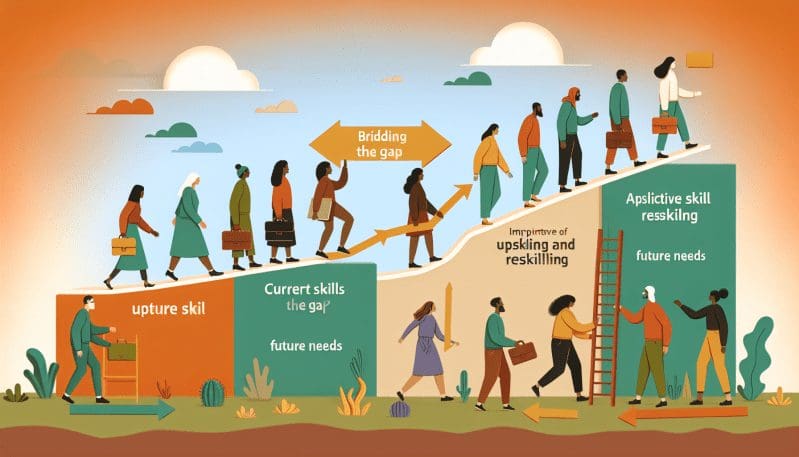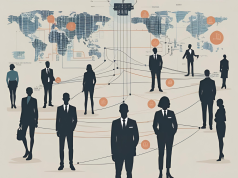In today’s swiftly transforming job landscape, the chasm between existing worker capabilities and the proficiencies required for emerging positions is not only becoming more pronounced, but also more challenging to bridge. The urgency of addressing this skills gap acquires an added layer of complexity when considering individuals with disabilities. For these members of the workforce, the hurdles extend beyond the typical constraints of time, resources, and awareness—they also grapple with accessibility and accommodation deficits in education and training contexts.
The significance of upskilling and reskilling—a means to refurbish one’s skill set to align with the fluctuating demands of the job market—cannot be overstated for creating a workforce that embodies inclusivity and is fully equipped to tackle future challenges. Tailoring such initiatives to account for the needs of workers with disabilities is not merely a matter of corporate social responsibility, but a strategic imperative that can yield benefits for the entire economy.
Employers are at the forefront of this endeavor, as they possess the immediate need for skilled labor and the resources to facilitate training programs. By fostering a workplace culture that values continual learning and adaptation, they can build a more loyal and diverse workforce. However, employers must ensure that such programs are designed with accessibility in mind, from providing assistive technologies to offering various learning formats that cater to different abilities and learning styles.
Policymakers also have a cardinal role to play by enacting legislation that incentivizes the creation of inclusive training initiatives. By offering tax breaks or grants to organizations that develop accessible upskilling programs, governments can encourage a shift toward a more inclusive approach to workforce development. Furthermore, policies that support lifelong learning and vocational rehabilitation for people with disabilities can help level the playing field.
Educators, on the other hand, must collaborate closely with industry partners to ensure that curricula remain relevant to the demands of the job market while being accessible to learners with disabilities. This could involve integrating universal design for learning principles into course materials, utilizing technology for personalized learning experiences, and offering career counseling that is attuned to the unique strengths and challenges faced by individuals with disabilities.
The potential impact of well-implemented upskilling and reskilling initiatives is substantial. Workers who can stay abreast of technological advancements and shifting industry trends can maintain their employability and contribute more effectively to the economy. For workers with disabilities, the benefits are dual-fold: such programs not only provide them with the skills necessary for meaningful employment but also empower them with a sense of autonomy and purpose.
Some current models are paving the way for what inclusive workforce training can look like. For instance, programs like Microsoft’s Inclusive Hiring for People with Disabilities and IBM’s Same Difference: Empowering Women with Disabilities through Skills Development showcase how large corporations can lead by example. Both initiatives demonstrate the nexus of tailored training methodologies, mentorship, and technology in creating pathways for success for workers with disabilities.
Innovative solutions must continue to emerge. Making remote learning and telecommuting permanent options can offer flexibility and accessibility. Creating partnerships between disability advocacy groups and training providers can ensure training materials are vetted for inclusiveness. Lastly, fostering communities of practice among workers with disabilities can promote shared learning and peer support, further enhancing the value of upskilling programs.
As The Work Times understands, the future of work hinges on our ability to evolve and learn together. Ensuring that upskilling and reskilling programs are accessible, equitable, and effective for workers with disabilities is not only a moral imperative; it is a strategic one that has the power to redefine the workforce and drive our economy forward. Therein lies the blueprint for a workplace that is truly inclusive, resilient, and ready for the future—a workplace that we strive to illuminate and shape through our continued advocacy and thought leadership.


























